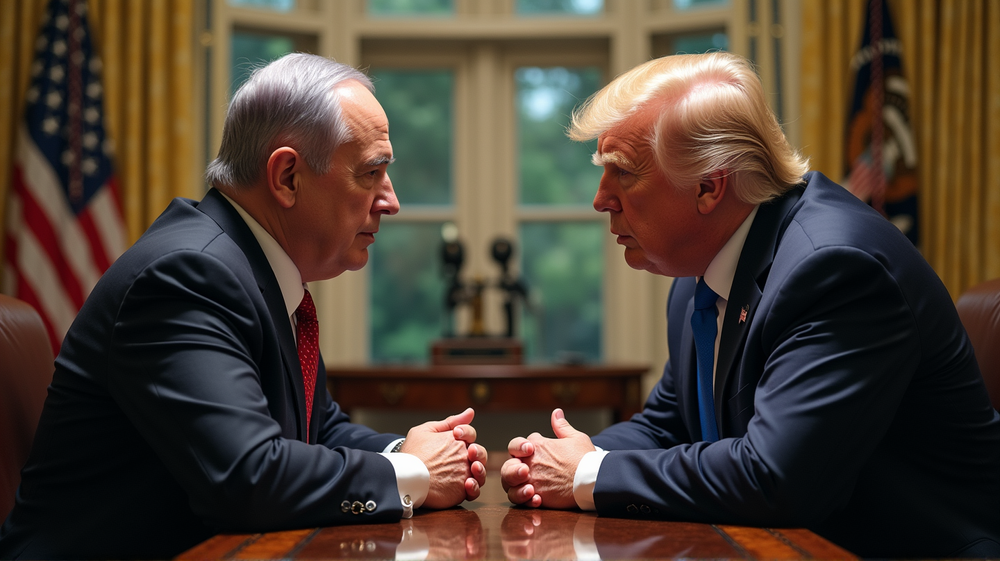In a move laden with political significance, Israel’s Prime Minister, Benjamin Netanyahu, is set to meet with former U.S. President Donald Trump to deliberate over what has been framed as a ‘victory over Hamas.’ This meeting signifies a pivotal moment in Middle Eastern diplomacy and highlights the complex web of geopolitical strategies at play.
The Context of Netanyahu’s Visit
Netanyahu’s journey to the United States is not merely ceremonial; it stands as a testament to the enduring alliance between Israel and American political leadership. The crux of these discussions hovers around the strategies that led to what Netanyahu terms a victory over Hamas, the formidable adversary in the Gaza Strip. This meeting brings to the forefront the tactical maneuvers and diplomatic efforts that have defined recent interactions between these historical rivals.
Victory Over Hamas: What Does It Mean?
The declaration of victory is a loaded term, one that encapsulates both military success and strategic positioning. While the specifics of this ‘victory’ remain partially veiled in political rhetoric, Netanyahu’s narrative is expected to center on the reduction of Hamas’ operational capabilities and the stabilization of threats posed to Israeli sovereignty. As stated in in Associated Press, this meeting may well set the tone for future bilateral agreements and defensive strategies.
Trump’s Role in the Negotiations
Trump’s involvement in these discussions cannot be understated. As a key ally during his presidency, his administration made significant moves that affected the Israeli-Palestinian landscape, including the controversial recognition of Jerusalem as Israel’s capital. Trump’s perspective on the talks with Netanyahu is anticipated to bridge past policies with current geopolitical realities, potentially shaping new avenues for cooperation or conflict resolution.
Political and Diplomatic Repercussions
As Netanyahu and Trump convene, global eyes rest on the potential outcomes and statements that will arise from their discussions. The stakes are high, with the potential to influence not only U.S.-Israel relations but also broader Middle Eastern dynamics. Analysts are keen to unravel what this ‘victory’ truly entails and how it might ripple through international relations.
The Road Ahead
The conference between Netanyahu and Trump marks a significant chapter in an ongoing saga of diplomacy and conflict in the Middle East. While the details of their discussions are closely guarded, the implications are far-reaching. Observers and experts alike will be watching closely, as these dialogues might redefine the fabric of historical alliances and set the course for future engagements with Hamas and other regional powers.
In conclusion, this meeting is more than a diplomatic formality; it symbolizes a potential shift in international strategies and an affirmation of long-standing alliances. As details emerge, the world will be eager to understand the true nature of this declared victory over Hamas and its implications for the Middle East’s future.












